
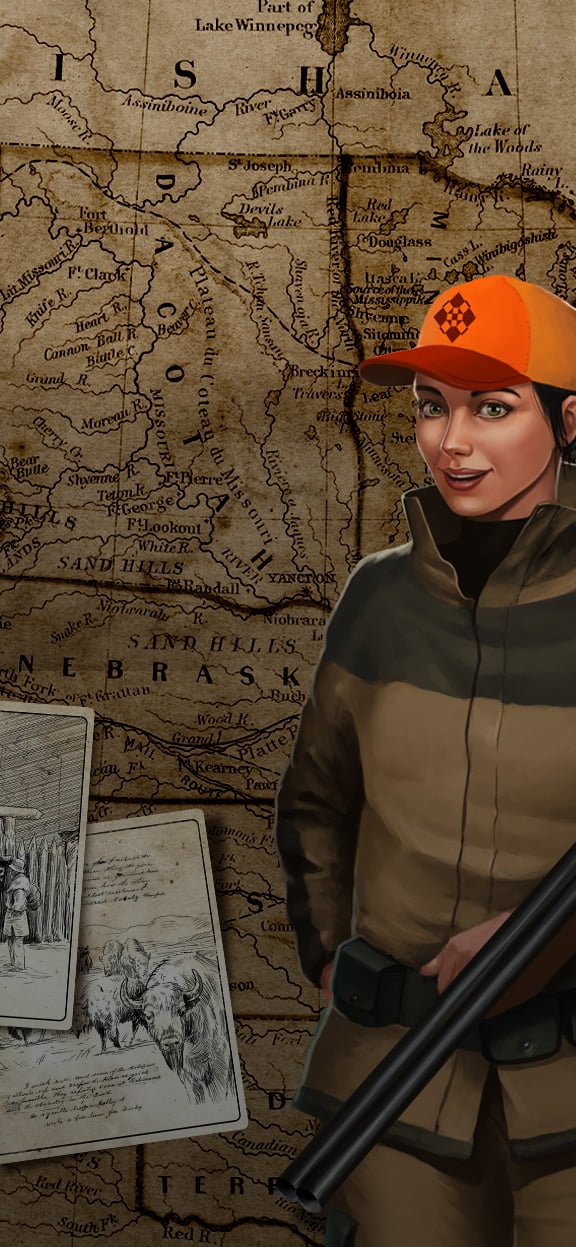


Are mobile games the future of gaming? What are their strengths and why are the big players becoming more and more interested in the mobile market? Eliza Chyży, Game Designer, and Kalina Sobierajska Junior Product Manager from the Fishing Clash team shared their observations on the mobile games market, which was published on gamingsociety.pl on September 22, 2021. The interview was conducted by Tomasz Alicki.
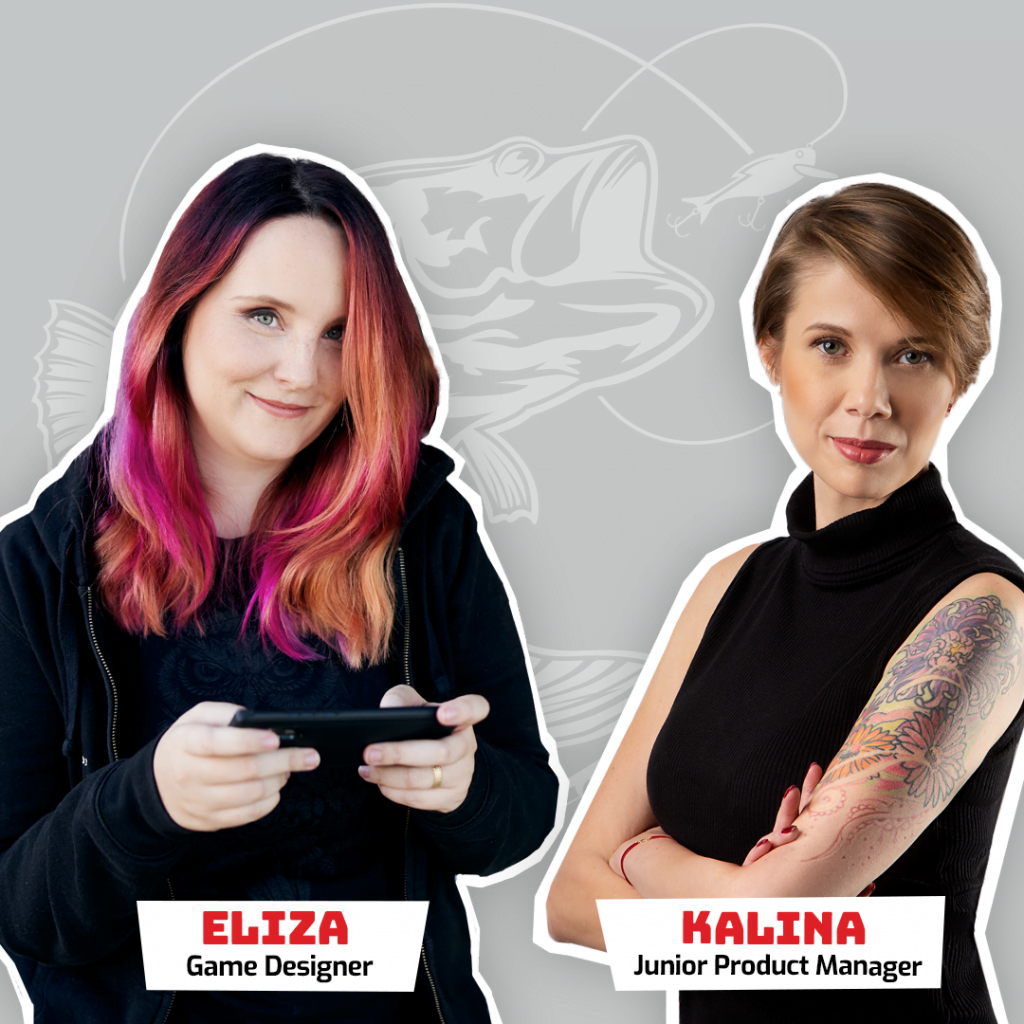
Not long ago, we had a chance to talk to two game designers who work on the mobile game Fishing Clash. We got to know the ins and outs of developing smartphone games and discovered how such work differs from creating PC or console titles.
Fishing Clash saw the light of day on 24 October 2017. In those four years, on Android alone, the game has amassed almost 1.5 million reviews, an average rating of 4.6, and a huge community of fans. Thanks to our cooperation with OVHcloud, we had a chance to talk to Eliza Chyży, Game Designer, and Kalina Sobierajska, Junior Product Manager. Both designers have been part of the Fishing Clash team for quite some time, so they were able to give us a behind-the-scenes look at how such a huge mobile game is developed.
I’m curious to know what your work was before and how you got started in mobile games. Did you work on PC or console games, or did you do something completely different?
Eliza Chyży: I’ve been in the industry for four years, and I specialize in mobile games. I started out as a Tester, and now I work as a Game Designer. Before joining Ten Square Games, I enjoyed taking part in the occasional game jam.
Kalina Sobierajska: Before I joined Ten Square Games, I worked at the University of Wrocław as a doctoral student at the Faculty of Philology. My specialization was linguistics. At Ten Square Games, I immediately began working on mobile productions.
You both have a lot of experience in the industry. Over the last few years, you’ve witnessed, along with the rest of the world, the offensive of powerful publishers on the mobile market. From your perspective, how much has the industry changed in recent years?
E: The mobile industry, especially the free-2-play model, is on top form, so it comes as no surprise that large companies are keen to enter this market. The business potential in mobile gaming is huge; therefore, an increasing number of major players want a slice of the cake.
K: Many people outside the industry are unaware of the scale of the mobile gaming market today and just how fast and thriving it is. In the collective consciousness, there is still a belief that gaming is all about console and PC games. Meanwhile, interest in mobile games exceeds interest in the previously mentioned premium products.
E: Gamers themselves also find it surprising. They are also taken aback by the involvement of global brands in mobile titles. To give an example, lots of people questioned Blizzard’s release of Diablo Immortal.
What are your predictions about the growth of this market? Where do you expect it to be in the next few years, or what direction would you personally like to see it take?
E: From my point of view, the new “holy grail” – just like Supercell’s Clash of Clans once was – will be the cross-platform model, of which Genshin Impact is an excellent example. Games designed this way are a bridge between PC and mobile games, and they are certainly good for business.
It is already apparent in game design how the mobile market is influencing the PC and console sector. They are launched as a premium model – we buy the finished product, but we are provided with opportunities to make purchases, which we know from mobile games.
We can demonstrate the above using a more concrete example of MMORPGs, such as World of Warcraft and Final Fantasy XIV – both titles offer stores where you can buy additional items such as leather armor, a new character design, or a horse. Both the subscription-based games and those in the buy-2-play category (the upcoming New World) have stores where you can purchase cosmetic items. Even Assassin’s Creed currently features the “pay to convenience” option, i.e. the ability to make your life easier by reducing the grind. In addition to cosmetics, you will find experience boosts or gold on sale in these stores. Such systems are slowly making their way from the mobile market to the gaming industry.
So, in your opinion, in terms of monetization, the PC and console market will increasingly find inspiration in the mobile market?
E: Let us remember that the games industry, even if created by enthusiasts and for enthusiasts, is still a business, and the business model that generates revenue inspires others to copy it.
K: I would focus not only on monetization but also on the social aspect of mobile games because their development within that sphere is exceedingly interesting. So-called social gaming provides an opportunity to build relationships and networks between players, which will also be of great importance in the future. This was evident in the past year when the pandemic gripped the world, making people crave contact with each other. Games are trying to meet this need in increasingly innovative ways. A good example of this is Sky: Children of the Light, where the focus is on building empathy, emotions and relationships between players. A very important element of this game is sound, which is a way for players to communicate with each other. There is no written text here, and users communicate using voice elements, which in earlier productions were sometimes made light of. Moreover, the game allows players to grab each other by the hand and run or fly together. In this way, a more experienced player can literally lead a beginner by the hand. As a result, characters learn new gestures and emotions in order to communicate with other players.
Let us focus on Fishing Clash for a moment. On a day-to-day basis, you develop the functions of this monumental mobile game. Previously, you also worked on events. How different are these mobile events from what players remember from Apex or Warzone?
K: Events are incredibly important to both our game and to many other mobile titles. They influence user engagement, motivate regular play and build a community. In Fishing Clash, we offer players a clan system that increases the importance of player interaction when combined with events.
There is clearly a growing emphasis on giving events a “live” feel. We also see the need to give players a sense of engagement and be responsive to what is currently happening in the world. And I don’t just mean occasional events like holidays or seasonal celebrations. We carried out our first charity in-game event this March, which was met with an amazing response. Our partnership with Healthy Seas, an NGO, allowed players to earn points which Ten Square Games then converted into a donation used by Healthy Seas to clean up marine pollution. By getting involved in the event, players were able to do something positive for the world and have a real impact on the natural environment.
And what do events look like from the technical side of things? The Seasonal Battle Pass in Apex Legends or Warzone often require tens or over one hundred hours of gameplay. Do you expect the same level of commitment from your players, or are these events designed for shorter sessions?
K: A lot depends on our design assumptions. We have quite a few one-day events, but there are some that last a week. Design assumptions for events are not always the same. The time required to complete an event may depend on objectives such as getting players more engaged or encouraging more competitive gameplay. Event design is more complex than it may initially seem. In Fishing Clash, we have a wide variety of events, including multi-day events. (which, of course, can be completed faster). A characteristic feature of mobile games is that users log in more often but for shorter periods of time. This must be kept in mind when you start designing because mobile titles are different in this respect from PC and console productions.
Do you share the worry of players who say that the current payment and micropayment model will spoil the gaming market and every game, even premium games, will require extra payments?
E: I think it’s worth reversing the perspective here. As designers, we wish to give our players the best experience possible, and this motivates us to make our games exciting, playable and continuously entertaining to keep everyone engaged. A title that doesn’t make a profit will either be shut down or discontinued after the first part. The easiest way is to compare it to the subscription model of Netflix or Disney Plus, where in addition to a subscription, you can pay extra to watch a movie on its theatrical release day. I don’t know of any games where players are made to pay. I have bought items in a game myself, but I always know what I’m buying – good entertainment. I also believe that even if a business advocates such a model, players will vote with their wallets and not use a product they believe is unethically designed.
K: All of us designers dream of bringing the joy of gaming to our players. We want them to like our product and have fun playing it. However, if the game doesn’t generate enough profit, its further development is at stake. Naturally, users are wary of pay-2-win, so the trick is to find the right balance between making the game profitable and providing good entertainment value. In free-2-play games, anyone can download the app for free, use it, and decide if it’s something they enjoy.

Eliza Chyży. Eliza started her career in Ten Square Games as a tester, later becoming a Level Designer and managing an entire team of designers, she now transforms concepts into real games. Her career path is not a suprirse, since Eliza’s been playing MMO games for 14 years, mobile, console and PC Games are her world. If you think your kids play games too much. If you’re worried that your children play too many games, stop—Eliza kept telling her mom she can’t pause the game because it’s online, and today she became an expert in games dedicated to women, breaking through the glass ceiling.
Kalina Sobierajska. Kalina has been working with the Fishing Clash team ever since she arrived in Ten Square Games. She took her first steps as a LiveOps specialist creating in-game events, and now works in the Content Team responsible for creating new content in-game (e.g. new functionalities, creating fisheries and implementing new fish species, etc). Kalina is a graduate of Interdisciplinary Studies in Humanities and Social Sciences at the University of Wrocław, and she’s currently working on a doctoral thesis in the Linguistics Department. Kalina’s interest in games goes back to her youth when she discovered traditional RPG’s and spent long hours playing games like Warhammer. She’s also interested in socially-engaged games. In her free time, she reads, watches movies, and as any would-be-PhD, studies, saying that its her greatest hobby.

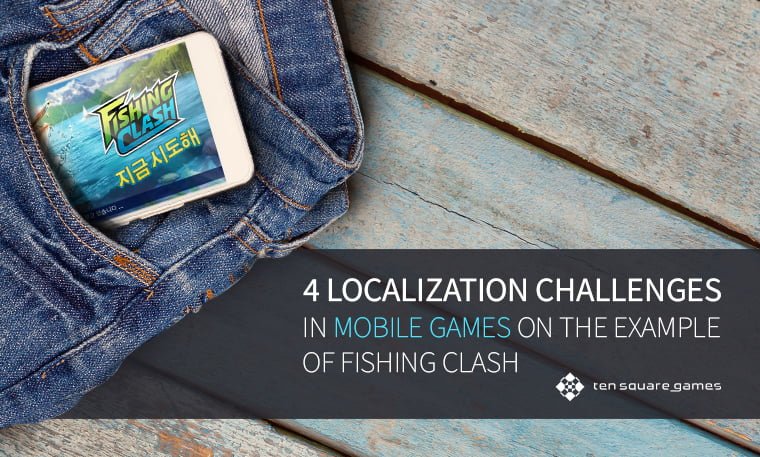
Let’s start with an important remark – localization doesn’t equal translation. With translation, your goal…
read more
My 10 favorite things about TSG for its 10th Anniversary: alented people – I met…
read more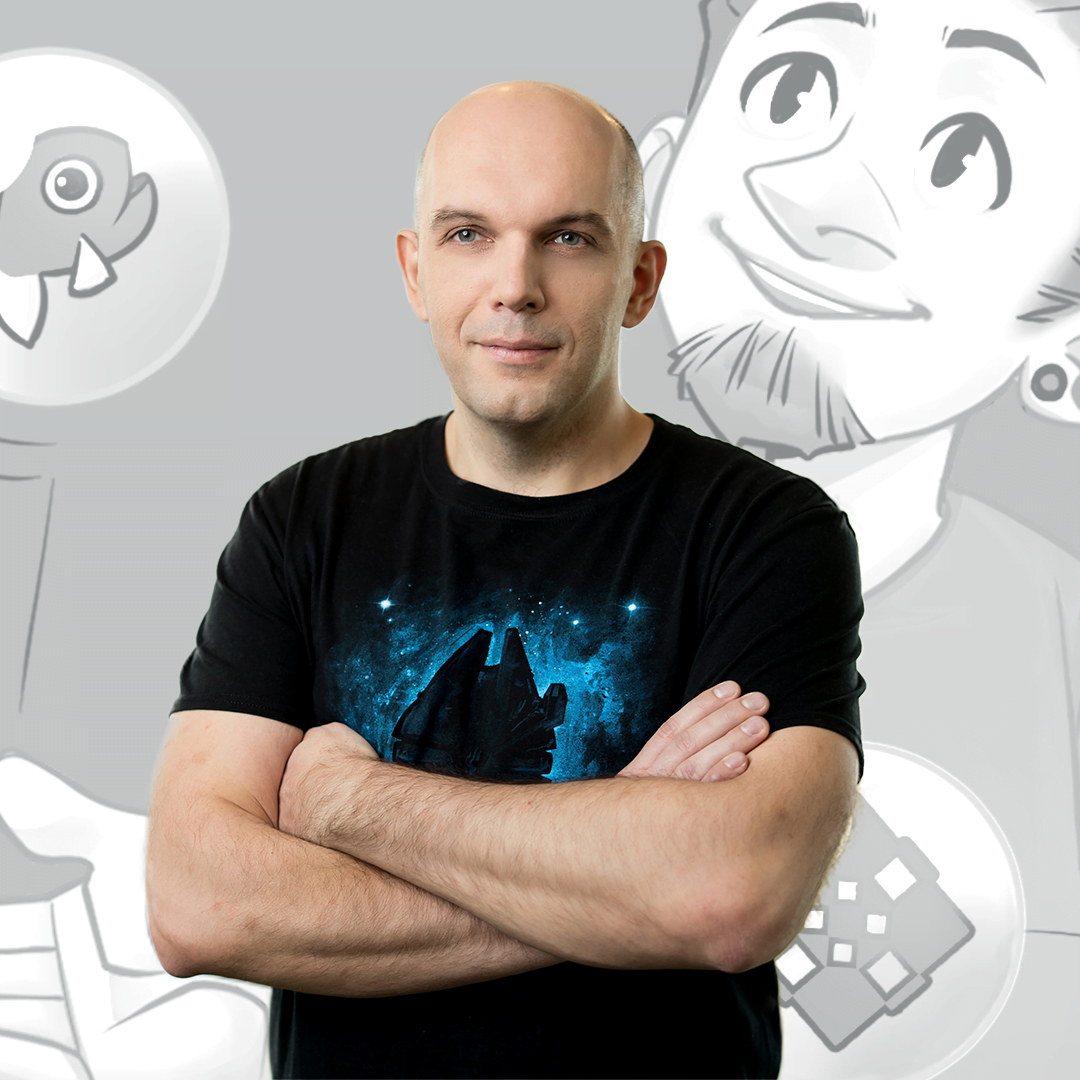
Game dev is a dynamic industry – here, unlike in many other sectors, things happen…
read more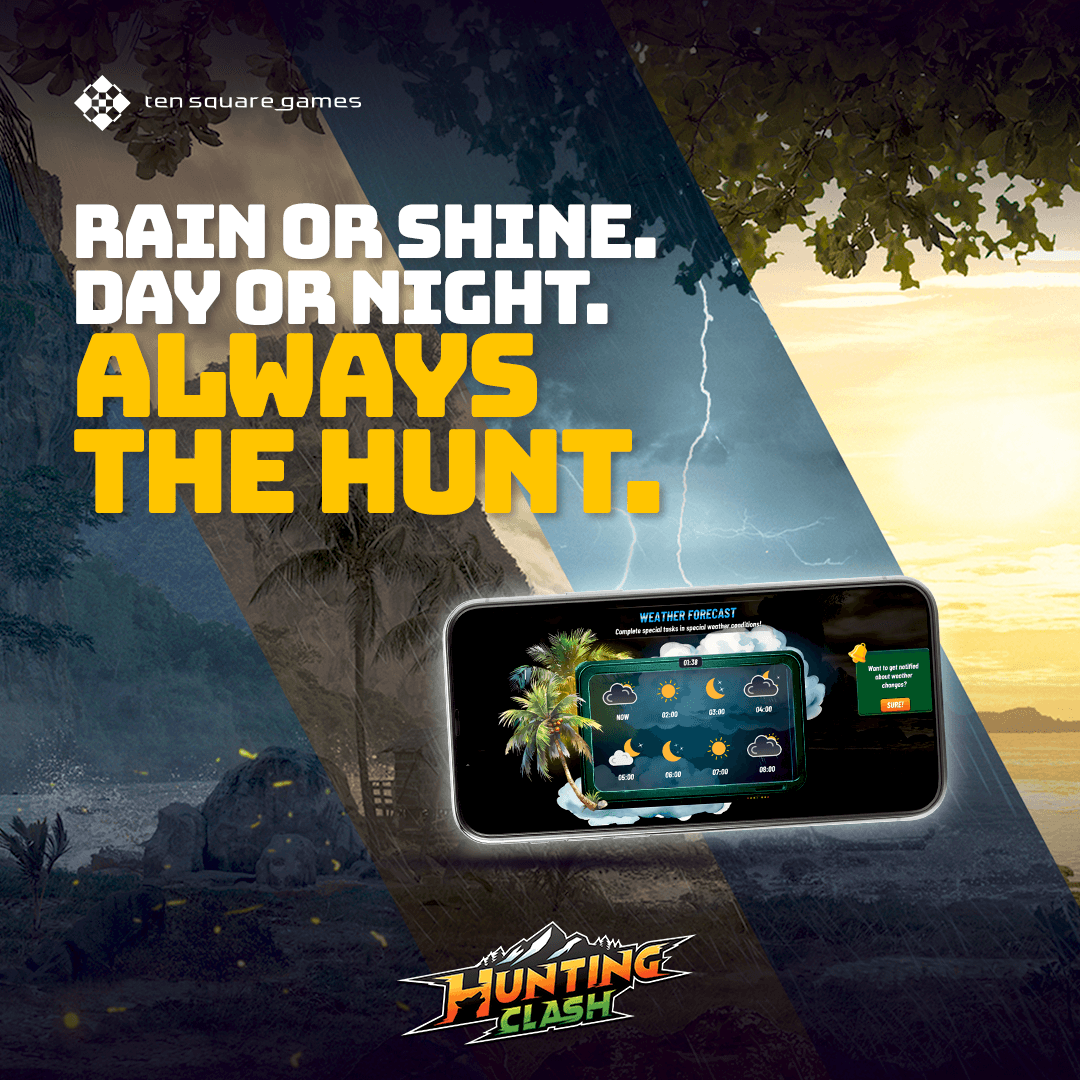
On July 25, 2025, Hunting Clash will take players to the rain-soaked landscapes of Thailand…
read more